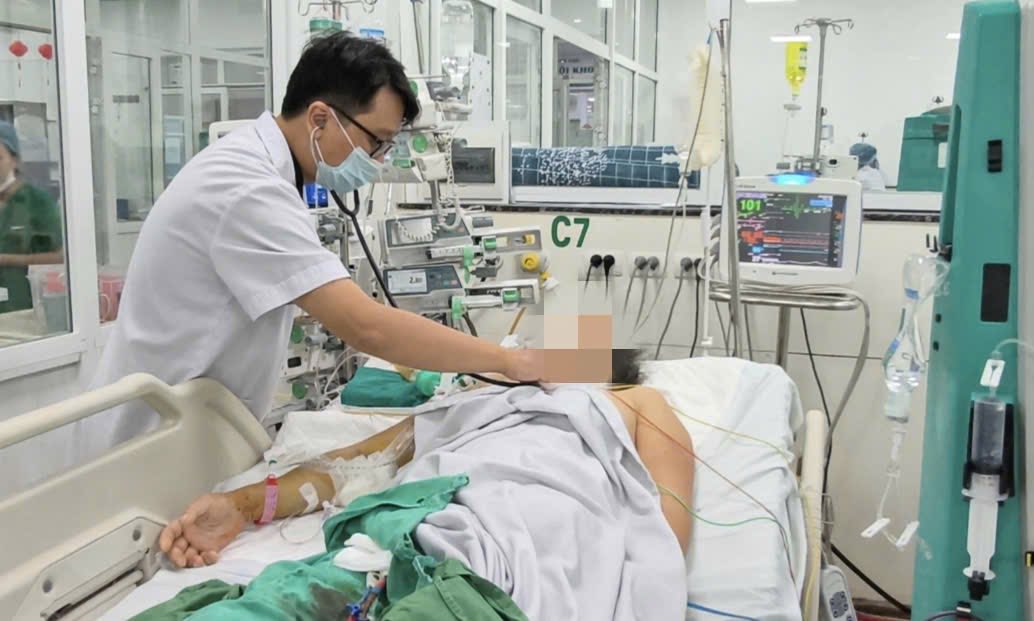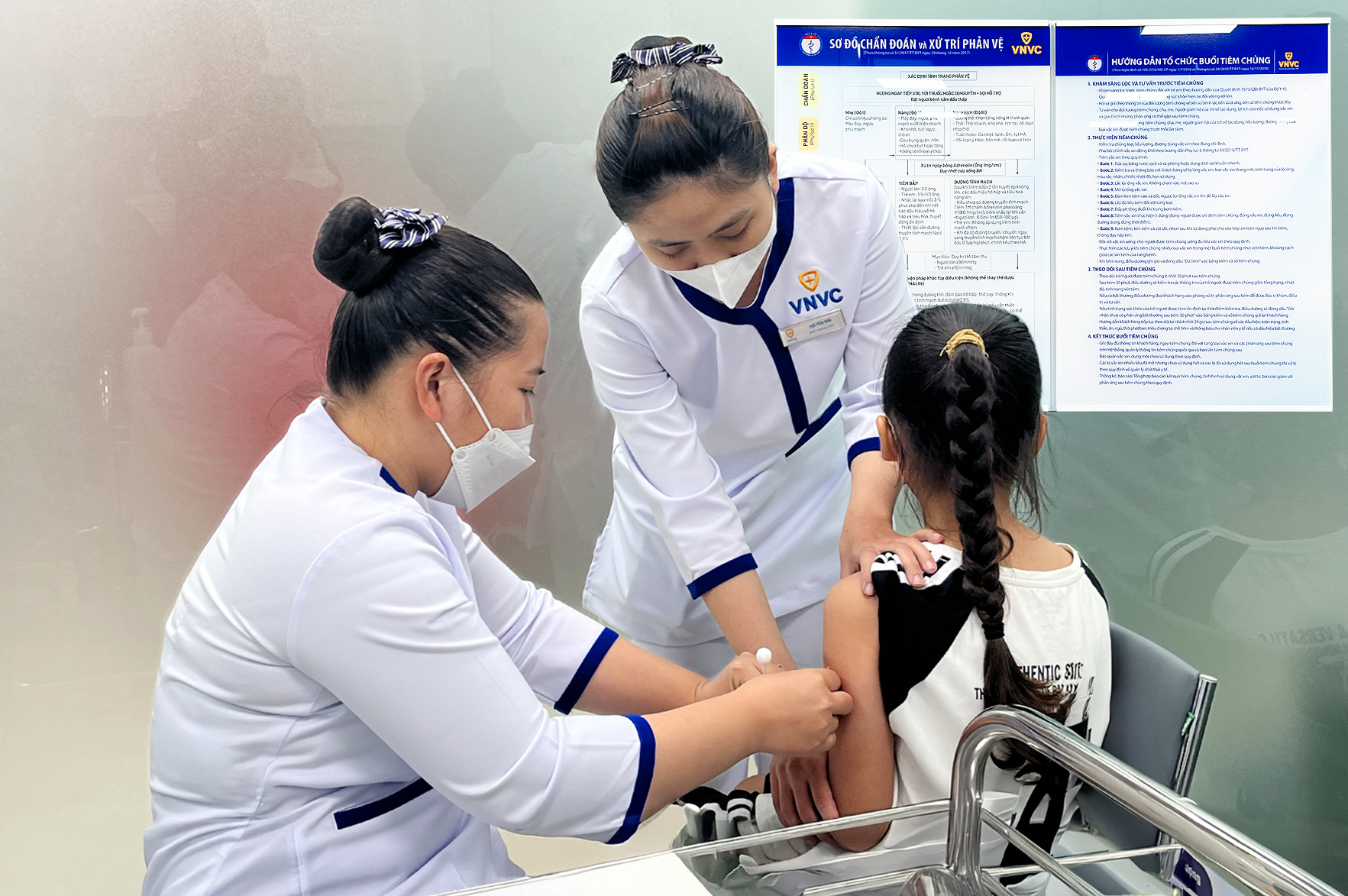Doctor Tong Thi Ngoc Cam, Deputy Medical Director of the Northern region for VNVC Vaccination System, issued this warning as numerous dengue fever cases become critical from the 4th day onwards. On 15/9, the Central Hospital for Tropical Diseases treated two cases of dengue fever with organ failure complications in the 4th to 7th day of illness. Both patients had self-medicated and received intravenous fluids at home, only seeking hospital care when their condition became critical.
"These cases serve as a serious warning against complacency regarding dengue fever," Doctor Cam stated.
 |
A 55-year-old patient from Hanoi with dengue fever complicated by multiple organ failure and severe blood clotting disorder receives intensive care at the Central Hospital for Tropical Diseases on 15/9. _Photo: Central Hospital for Tropical Diseases_ |
According to Doctor Cam, dengue fever progresses through three phases. Initially, patients experience high fever, headaches, and body aches for 2-3 days. From days 4-7, while the fever may subside, this is the most dangerous phase. Although the viral load decreases, the virus continues to attack the body, increasing vascular permeability, leading to plasma leakage, blood thickening, and a drop in blood pressure, which can result in dengue shock. Warning signs include abdominal pain, particularly in the right upper quadrant, frequent vomiting, fatigue, nosebleeds, bleeding gums or under the skin that is difficult to stop, accompanied by shortness of breath and chest tightness.
This critical phase of dengue fever typically occurs within 24 hours of the fever subsiding. Immediate medical intervention is crucial.
However, during this phase, patients often become complacent, assuming they are recovering, leading to delayed medical attention and increased risk of complications and death. Some avoid seeking medical help, opting for self-medication and intravenous fluids at home, further escalating the risk.
Therefore, Doctor Cam advises against complacency in dengue fever cases. Outpatients should have daily check-ups, especially from day 4 to day 7 of the illness. It's vital to adhere to prescribed medications. Hospitalization is recommended for individuals who are overweight, obese, pregnant, elderly, immunocompromised, have chronic illnesses, are on long-term medication, live alone, or reside far from medical facilities.
 |
A 9-year-old girl in Tan Nhut commune, TP HCM receives her second dose of the dengue fever vaccine at VNVC Vaccination System. _Photo: Dieu Thuan_ |
Patients should maintain a nutritious diet, opting for easily digestible foods like porridge, soup, and fruit smoothies, along with adequate hydration, hygiene, and rest. Excessive dietary restrictions, scraping (a traditional healing practice), steaming, and consuming red or dark-colored foods are discouraged.
Dengue fever is caused by the dengue virus, transmitted through the bite of infected Aedes aegypti mosquitoes. The alternating weather conditions, with sunshine during the day and rain at night, in the southern provinces create ideal breeding grounds for these mosquitoes, increasing the risk of transmission.
Preventive measures include wearing long clothing and using mosquito nets, even during the day. Eliminating mosquito breeding grounds by clearing bushes, maintaining cleanliness, removing stagnant water containers around the house, and covering water storage containers are also essential.
A dengue fever vaccine is available for individuals from 4 years of age to adults. The vaccine helps prevent infection by various dengue virus types, reducing the risk of illness by over 80% and hospitalization by over 90%. The vaccination schedule consists of two doses, administered 3 months apart. Women planning pregnancy should complete the vaccination schedule at least three months, and ideally one month, prior to conception.
Tuan An












